Grid False Ceiling Cost. Everything You Need to Know
Introduction
A grid false ceiling is an excellent way to enhance the aesthetic appeal of any room while providing functional benefits. It offers a sleek and modern look while hiding unsightly wires, pipes, and ducts. If you’re considering installing a grid false ceiling, one crucial factor to consider is the cost. In this article, we will delve into the various aspects that affect grid false ceiling cost, helping you make an informed decision for your project.
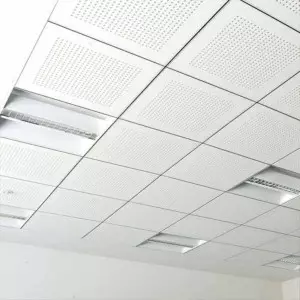
1. Understanding Grid False Ceilings
What is a Grid False Ceiling?
A grid false ceiling, also known as a suspended ceiling or a drop ceiling, is a secondary ceiling installed below the primary ceiling. It consists of a grid-like framework made of metal channels or T-sections that hold individual panels in place. These panels can be made of various materials such as gypsum, mineral fiber, or metal. The grid structure creates a modular layout, allowing for easy installation and maintenance.
Advantages of Grid False Ceilings
Grid false ceilings offer several advantages. Firstly, they provide a clean and polished look to any space, hiding imperfections and providing a smooth surface. They also serve as an excellent way to conceal electrical wiring, plumbing, and HVAC ducts, improving the overall aesthetics of the room. Additionally, grid false ceilings enhance acoustic insulation, reduce echo, and improve energy efficiency by creating an air gap between the primary and false ceilings.
Types of Grid False Ceilings
There are various types of grid false ceilings available, each with its own unique characteristics. Common types include:
- Gypsum False Ceiling Tile: Made from gypsum boards, these ceilings are lightweight, fire-resistant, and offer excellent sound absorption properties. Cost: Rs. 60 to 120 Per Sft.
- Mineral Fiber False Ceiling Tile: These ceilings are manufactured using mineral fibers and are known for their superior acoustic performance and thermal insulation. Cost: Rs. 60 to 150 Per Sft.
- Metal False Ceiling Tile: Made of aluminum or steel, metal false ceilings are durable, easy to maintain, and ideal for commercial spaces. Cost: Rs. 100 to 250 Per Sft.
- PVC Gypsum Laminated Ceiling Tile. Cost: Rs. 55 to 110 Per Sft.
- PVC Designer Ceiling Tile. Cost: Rs. 75 to 125 Per Sft.
- Glass Reinforced Gypsum Ceiling Tile. Cost: Rs. 70 to 140 Per Sft.
- Cement Fiber Ceiling Tile. Cost: Rs. 60 to 150 Per Sft.
- Calcium Silicate Ceiling Tile. Cost: Rs. 90 to 25 Per Sft.
- Acoustic Ceiling Tile etc. Cost: Rs. 60 to 300 Per Sft.
Note: The above mentioned costs are just an average price. The prices are subject to change. It will vary depending on quantity, place of installation and site conditions.
Please Contact Us to know the Actual price of all the Ceiling Tile options.
2. Factors Affecting Grid False Ceiling Cost
When determining the cost of a grid false ceiling, several factors come into play. It’s important to consider these factors to estimate an accurate budget for your project.
a. Ceiling Area: The size of the ceiling area is a primary factor in determining the overall cost. The larger the area, the more materials and labor will be required, resulting in a higher cost.
b. Material Selection: The choice of materials significantly impacts the cost of a grid false ceiling. Different materials have varying price ranges, with gypsum and mineral fiber being more affordable options compared to metal.
c. Complexity of Design: The complexity of the design affects the cost of a grid false ceiling. Intricate patterns, curves, and recessed lighting installations require more effort and expertise, leading to higher costs.
d. Additional Features: Additional features such as integrated lighting, soundproofing, or air conditioning vents can increase the overall cost of the grid false ceiling.
e. Professional Installation: Hiring professionals for the installation ensures a high-quality finish and reduces the risk of errors.
3. Estimating Grid False Ceiling Cost
To estimate the cost of a grid false ceiling accurately, consider the following cost components:
a. Cost per Square Foot: The cost per square foot is a common method used for estimating grid false ceiling costs. It takes into account the materials, labor, and other expenses required to complete the project.
b. Material Costs: Materials such as gypsum boards, mineral fiber panels, metal tiles, and the associated accessories contribute to the overall cost. The prices of these materials can vary based on their quality and brand.
c. Labor Costs: Labor costs depend on the complexity of the project, the skill level required, and the duration of the installation. It’s essential to hire experienced professionals to ensure a flawless installation.
d. Additional Expenses: Additional expenses may include transportation of materials, scaffolding requirements, surface preparation, and disposal of waste materials. These costs should be considered when estimating the total project budget.
4. Tips for Grid False Ceiling Cost Optimization
Consider the following tips to optimize the cost of your grid false ceiling project:
a. Research and Compare Prices: Research different ceiling tile options and compare the price and quality of the materials and services. Based on your requirement, obtain multiple options from us to make an informed decision.
b. Opt for Standard Designs: Choosing standard designs can help reduce costs. Customized designs often require additional labor and materials, increasing the overall expense.
c. DIY vs. Professional Installation: While DIY installation may seem cost-effective, it’s crucial to evaluate your skills and expertise. Improper installation can lead to costly mistakes, so it’s advisable to hire professionals for a flawless finish.
Conclusion – Grid False Ceiling Cost
A grid false ceiling offers a stylish and functional solution to enhance the appeal of any room. Understanding the factors that influence the cost is essential to plan your budget effectively. Consider the ceiling area, material selection, design complexity, additional features, and professional installation when estimating the cost. By following the tips provided, you can optimize the cost of your grid false ceiling project while achieving the desired aesthetic and functional outcomes.
Frequently Asked Question- Grid False Ceiling Cost
1. What is the average grid false ceiling cost in India?
Answer: The average grid false ceiling cost in India varies based on factors such as the ceiling area, materials used, and design complexity. For a Room Size of 10ft x 10ft, the costs may vary anywhere between Rs. 60 to 250 Per Sft depending on the type of Ceiling tile you choose.
2. Can I install a grid false ceiling myself?
Answer: While DIY installation is possible, it’s recommended to hire professionals for a flawless finish. Professional installers have the expertise and tools to ensure a high-quality result.
3. Which materials are commonly used for grid false ceilings?
Answer: Common materials used for grid false ceilings include gypsum boards, mineral fiber panels, and metal tiles. The choice of material depends on factors such as budget, aesthetics, and performance requirements.
4. How long does it take to install a grid false ceiling?
Answer: The installation time for a grid false ceiling varies based on the size of the area, complexity of design, and the number of workers involved. For an area of 1000 Sft, it generally takes 3 to 4 days to install Grid false ceiling. However, it’s better to consult with us for a time frame specific to your project.
Can a grid false ceiling be installed in any room?
Answer: Grid false ceilings can be installed in various rooms, including residential and commercial spaces. However, factors such as the room’s height, structural considerations, and intended use should be taken into account during the planning stage.
Grid Ceiling Products
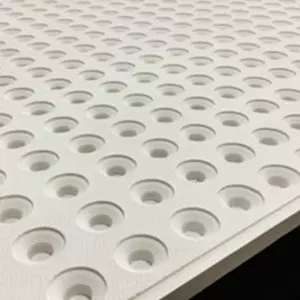
Grg ceiling tiles
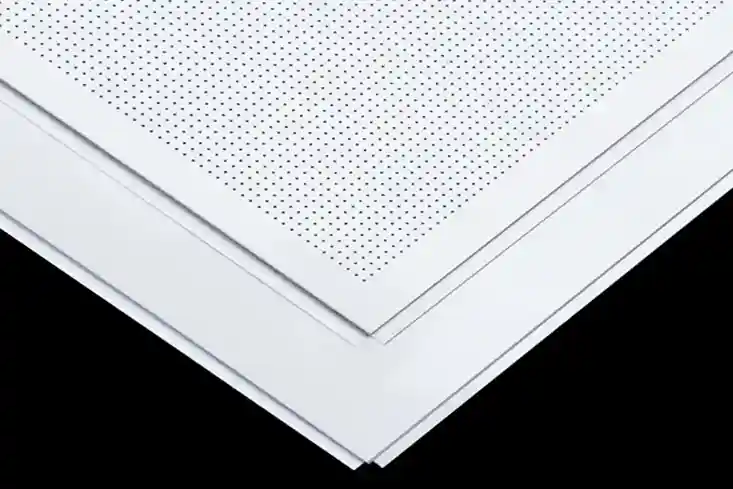
Metal Ceiling Tile
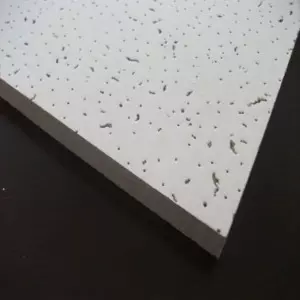
Mineral Fiber Ceiling Tile
Contact Us
Mobile: +919008400701 / 705
Email: sales@jayswalgroup.com
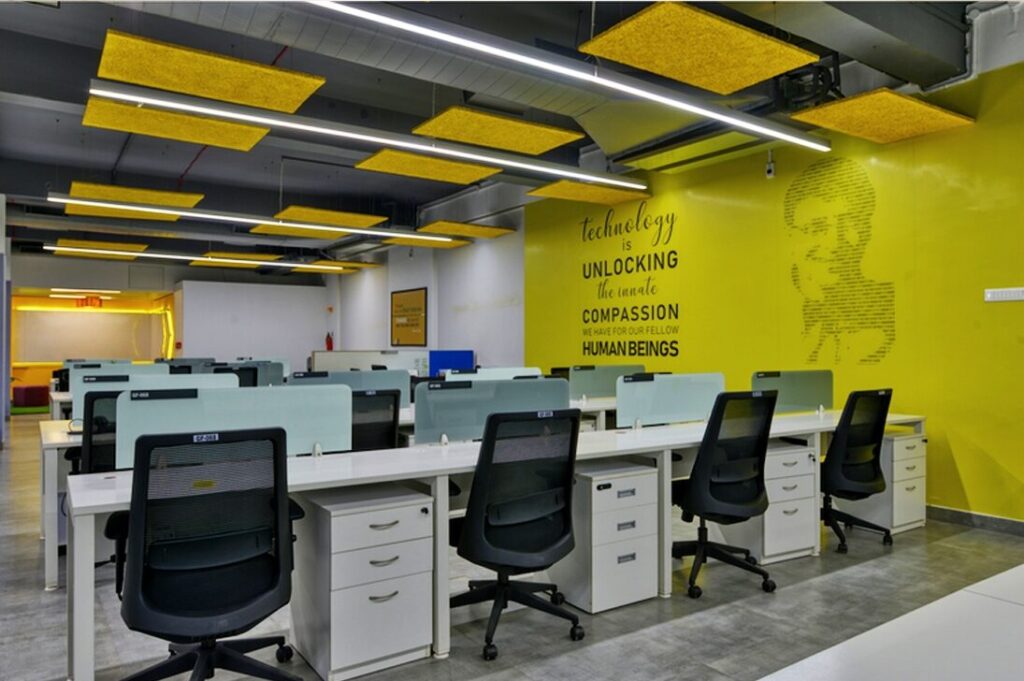
Visit Us
Address:
#6, 10th B Cross, Jayswal Center, KHB Main Road, Kaveri Nagar, Kanakanagar, RT Nagar, Bangalore – 560032, Karnataka, India.
Other Websites: